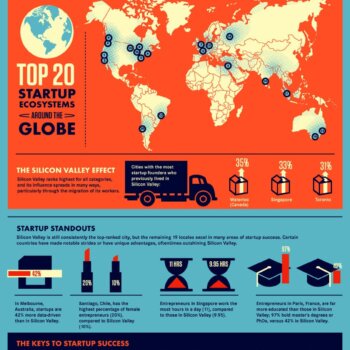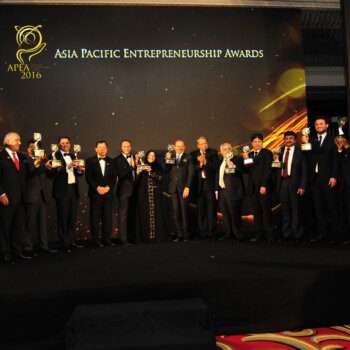When you leave Facebook’s campus in Menlo Park, you’ll notice an old Sun Microsystems logo still intact on the back of Facebook’s welcome sign—intentionally left there as there as a reminder of what happens to companies that fail to innovate. If your organization wants to avoid the same fate, make sure you avoid these five traits.
- Routine Management Processes. The larger a company gets, the more processes are implemented to streamline communication across larger teams. While processes create simplicity and order, they also become entrenched and self-reinforcing. The solution? First identify any processes that no longer add value, and then pilot new initiatives outside the existing processes.
- Inappropriate Metrics. Large companies should not only question what, but how to measure when examining current workflows to prevent potential blind spots. One strategy is to define your relevant market as widely as possible, so that your market share is as low as possible. This way, you encourage creative approaches to previously unconsidered markets.
- A Disconnected Front Line. As the ones closest to the customer, the best ideas often come from employees on the front line— salespeople, developers working with third parties, purchasing managers. However, most large companies don’t have effective communication channels to allow their suggestions and frustrations be adequately heard. To mitigate this, invest in technology based systems that allow for easier access and sharing of information and suggestions.
- Homogeneity. Different and diverse backgrounds, experiences, and stories allow for a more creative and innovative work environment. While we are all more comfortable working with people that have similar backgrounds and viewpoints, hiring people with diverse vantage points eliminates groupthink and bias while stimulating healthy discussion leading to a more informed decision making process.
- Fear of Failure. The more successful a firm becomes, the more risk-averse it becomes. The need to constantly succeed breeds caution and rigidity, stifling a culture innovation and ultimately leading to long-term failure. This paradox can be solved by developing a corporate culture that encourages trial and error.
Takeaway: Despite vast resources, power, and potential, any large organization can fall behind in an evolving marketplace. Take a deeper look at your company’s existing processes to ensure that everything is intentional (not just habitual) and seek out ways to introduce safe-to-fail experiments to maintain an innovative edge.
______________________________________
About the Author
This article was produced by NOBL, an organizational design firm. They unleash the creativity and capability of teams through new ways of working.





























